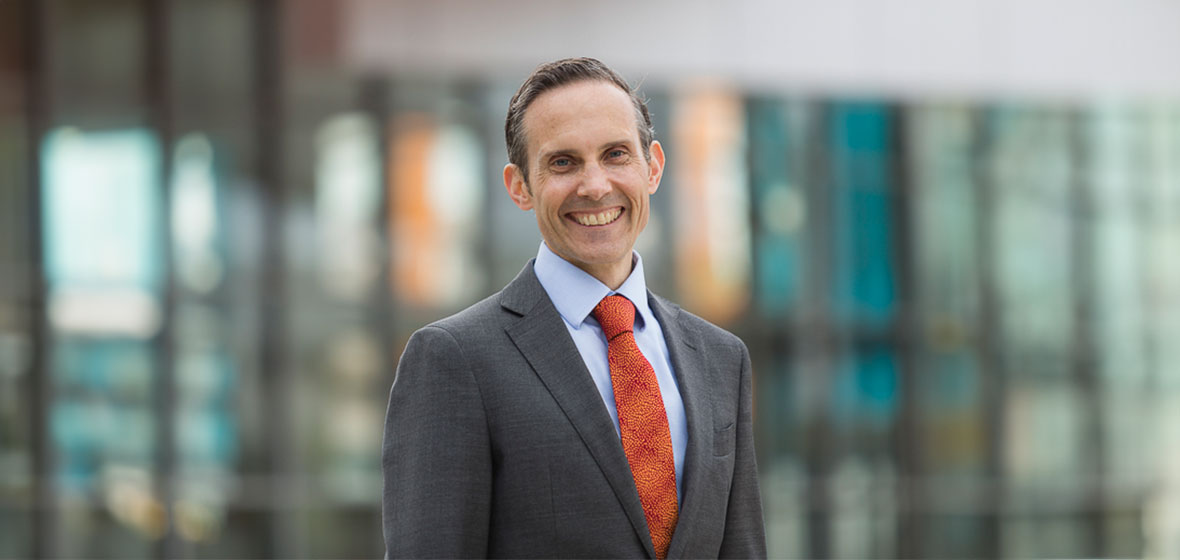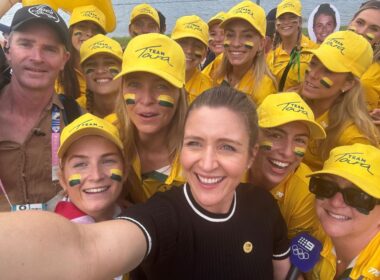The smartest person in Australian politics is someone you’ve probably never heard of.
Fifty-three-year-old Dr Andrew Leigh has been the Labor Member for the Canberra seat of Fenner (previously Fraser) since 2010. Unlike many of the biggest names and personalities in Parliament House, the tall, wiry and always smiling Leigh was never destined for politics, never desperate for power nor hungry for control. His path to politics is unusual, and refreshingly so.
Like several of today’s crop of politicians, Leigh began his professional career as a lawyer, first at top-tier commercial firms in Sydney and London, and then, to the envy of many law students, as an Associate to Justice Michael Kirby.
But he quickly changed direction. Despite having any number of legal avenues open to him, Leigh was careful “not to commit the sunk-cost fallacy”. Using “cost-benefit analysis”, and with Justice Kirby’s blessing, he turned to economics.
“I felt that for the issues I cared about most – around poverty and disadvantage – the economic framework of incentives was more useful than the legal framework of rights”, he says.
Leigh jetted off to Harvard on a full scholarship, first to undertake a Master’s in Public Administration, and then for a PhD in Public Policy, where his thesis was “Essays in poverty and inequality.”
And so began a prolific academic career – Leigh is the author or co-author of over 100 journal articles, 12 books and more than 200 newspaper columns.
At just 36 years of age, Leigh became a Professor of Economics at the Australian National University. The world of academia was at his feet, much like the legal world not 10 years earlier. So naturally, just two years after his promotion to full professor, Leigh changed direction again, this time for the murky world of politics.
“I was happy as an ANU academic”, he told the Sydney Morning Herald at the time. “But I come from a family where the ideal is very much that a life well-lived is a life serving others.”
Such idealism is sorely absent from politics, and almost always sounds inauthentic when expressed. With Leigh, it seems genuine.
Here was an opportunity to implement some of the recommendations from his scholarship on poverty and disadvantage, to bring some expertise back to politics, to build a better economy and a better Australia. Leaving the plush world of academia for the warring one of politics would be difficult, but worthwhile.
“It’s a case of Left, Right, or Out.”
Leigh campaigned hard for months to obtain preselection in a safe Labor seat covering the north-west of the ACT, where he has now held office for 13 years. He continues to publish prolifically; he hosts a podcast, The Good Life, where he interviews people about living a happy, healthy and ethical life; and, like any stereotypical overachiever, he runs marathons around the world in well under three hours, plus the occasional ironman (3.9km swim, 180.2km bike, 42.2km run).
So why the relative anonymity?
Why is the person who represents precisely what much of the Australian public looks for in their politicians largely unknown to that very public?
Why is Andrew Leigh – an impeccably credentialed, long-term member of a safe Labor seat – not among the 14-person Labor Ministry, nor even the seven members of the Outer Ministry?
Leigh’s idealism is the primary culprit.
Of the 102-person federal Labor caucus, Leigh is one of just two who are not aligned with a faction.
Factions are sub-groups of members of the same party who work together to progress their interests. Particularly among the Labor Party, factions are influential in nominating candidates for pre-selection, determining party leadership, and allocating frontbench portfolios. Today’s Labor Party is split into the Left and Right factions, with each allocated about half of the positions in the Ministry – leaving no space for the fiercely independent Leigh.
It is pretty well accepted that Leigh’s decision not to join a faction has hampered his political progression. For years Leigh mostly stayed quiet about his choice and its consequences, but in the middle of last year he changed course.
In a speech to the Per Capita think tank’s John Cain Lunch, Leigh decided “to speak… about something that is almost never mentioned: the role of factions”.
Leigh excoriated the “total factionalism” in today’s ALP, ruing how the “factional duopoly… stifles debate”, resulting in a party that is “less dynamic” and “profoundly undemocratic”, where, in most states, “It’s a case of Left, Right, or Out.”
“Politics isn’t all about power”
While in the past choosing not to align with a faction was considered just as valid as joining one, Leigh said that today, factional membership is “essentially compulsory”. As a consequence, Leigh said, Labor’s internal discussions have become less about philosophy than arithmetic; its contest of ideas replaced by a battle for power.
“Politics isn’t all about power”, Leigh says. “I’m aiming to engender a greater sense in politics that ideas can make a difference. Not power, but the application of power to ideas, whether those ideas come from better use of data, academia, or careful reflection.”
A common criticism of Australia’s leaders is their dearth of expertise, with hugely consequential decisions made by individuals who have rarely worked outside politics, and who consult only narrowly and briefly.
Leigh is somewhat of an antidote to this problem.
As the Assistant Minister of Competition, Charities and Treasury, Leigh has set up the Australian Centre for Evaluation, which runs trials of complex policy proposals to ensure decisions that will affect the nation are based on evidence. Although as an assistant minister his own power is limited, Leigh sees his role as a “transmission belt between the world of ideas and the world of power”, bringing academics, subject-matter experts and parliamentarians together, seeding ideas in the minds of colleagues, and even “quietly whispering ideas to someone who’s got the portfolio”.
Just what are these ideas?
What are the biggest issues that Leigh seeks to combat using data and careful contemplation?
“Social disadvantage and community connection”, Leigh says. “Australia used to be more a country of we and less a country of me. Increasingly in recent decades it has become more individualistic, with a rising gap between rich and poor, and a declining sense of community participation.”
It is working on these issues – building a more connected, evidence-based society – that most excites Leigh; “a stoic response to angry populism”, he calls it, which is on the rise across much of the advanced world.
At Harvard, Leigh studied under the famed political scientist Robert Putnam, the author of “Bowling Alone”, the pre-eminent text about the decline of American civic life and social interaction over the last several decades. Leigh has documented a similar collapse of Australian community participation and is motivated to revive our sense of togetherness and combat the populism that feeds on isolation.
“Look for your comparative advantage”
Building back flourishing community groups, combating the decline in volunteering, getting people off their phones and sending them outdoors and into the company of others are vital to revive the society of “we”, Leigh says.
But more is needed. Australians work harder than they ever have, spending more hours in the office (or home office), with less time for leisure. Leigh says we need to make sure workers don’t feel compelled to keep working into the night. “As a country we haven’t had a serious conversation about the work hour since the 1970s”, Leigh says. “It’s interesting and important to have the conversation.”
But Leigh says it’s probably up to the firms to make work more effective, rather than the government stepping in to cap work hours, which he doubts will be effective.
The government’s role is clear, he says. In addition to maintaining high-quality public schools, public healthcare and community facilities, “we need to make sure that Australians not being able to afford housing isn’t the thing that keeps them in the office after seven at night.”
Building more housing is essential, but what about supporting tenants? One of the reasons Australians are so determined to buy their own home is because of the insecurity of the renting market. Leases are almost never longer than one year, and with only weeks’ notice they can be terminated if the landlord opts to sell, renovate or move into the property.
I asked Leigh whether Australia looked to Europe for inspiration, where large superannuation companies (rather than private landlords) often own huge chunks of residential property, where long-term (multi-year) leases thrive, and consequently, where tenants feel much less pressure to buy a house.
Leigh says that the states and territories have committed to look at long-term leases and see what’s possible in Australia.
There is work to do, and Leigh is up for the task.
Who knows if his time will ever come for elevation to the frontbench, but regardless, Dr Andrew Leigh will head into work every day (after a very long, very early run) determined to make a difference; determined to contribute to a better, more connected society.
What about today’s fresh crop of graduates who are eager to do the same, I ask. The law students and other bright-eyed youngsters, disillusioned by the daunting corporate ladder, looking for a way to make a difference.
“Look for your comparative advantage”, Leigh says. “Look for a niche in which there are things that you enjoy doing more than other people, or maybe you have a particular talent for. Try and resist the temptation to always run with the herd and do the thing that everyone is doing or that seems popular at the time. One way of thinking about your career is to imagine what a benevolent social planner would do with you. Think about it like this: what does the world need me to do?”
Image credit: Hilary Wardhaugh




